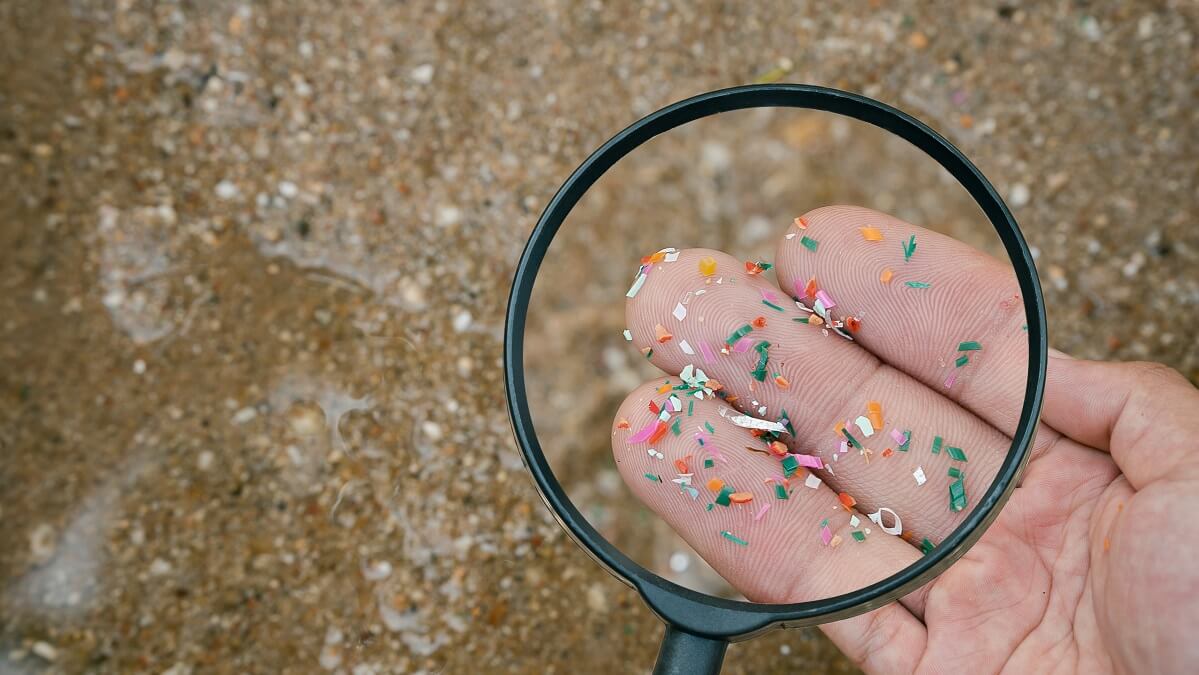We’ve long known about the devastating effects of diseases such as asbestosis and silicosis. Luckily, most of us are not exposed to either substances in our day-to-day lives. But what nearly all of us are exposed to, and likely have within us, are microplastics.
And we really don’t have much idea about what harm, if any, they are doing. But scientists are concerned.
Harrowing stories of silicosis – a fatal lung disease caused by tiny particles of silica entering the airways of tradies (and miners) who cut stone – have made headlines in recent days.
It’s a reminder of the need to remain vigilant when dealing with exposure to material so fine we can’t see it with the naked eye. Most microplastics (defined as smaller than 5mm) don’t fall into that category, but nanoplastics (less than 100nm – that’s one 10,000th of a mm)do, and researchers are becoming increasingly worried about what they might be doing to the health of humans.
Unlike asbestos and silicon dust, microplastics can be found everywhere – literally – on the planet.
Think of a stray plastic shopping bag that lodges under a shrub in your backyard, out of sight. It might sit there for months, even years, before you notice it and pick it up. It crumbles in your hands, having degraded over time. Despite your best efforts, small fragments are left in the soil under your shrub.
Now extrapolate that scenario to your local parkland, with a river or creek running through it. Plastic degrades, the microplastics get washed into the bay, the sea, the ocean.
Studies have shown these microplastics have been found in oceans, rivers and soil all over the world, even in the remotest of places. Perhaps even more alarmingly, they have been found in rain falling over cities.
If that revelation has not raised your eyebrows, perhaps this will: microplastics have now been found in fish, deep inside the lungs of surgical patients and in the blood of anonymous donors and breast milk.
Of course, none of this would be a problem if those particles sat there inertly or passed through animals and humans without change. But the truth of the matter is, we don’t yet know if that harmless scenario is what is playing out.
The fear of many scientists is that it is not. While there have been no epidemiologic studies confirming a link between exposure to microplastics and effects on health, researchers point out that chemicals found in plastic have been linked to a range of health problems including cancer, heart disease, obesity and poor foetal development.
A study published by researchers at the Universities of Hull and Leeds last April suggested that high levels of microplastics in our bodies may also cause cell damage. Four months later, in a report titled Dietary and inhalation exposure to nano- and microplastic particles and potential implications for human health, the World Health Organization, while acknowledging the need for further research, summarised the current general view as follows:
“There is increasing public awareness and an overwhelming consensus among all stakeholders that plastics do not belong in the environment, and measures should be taken to mitigate exposure to NMP (nano- and microplastic particles).”
The simple truth is that we don’t yet know what long-term effect the release of microplastics is having, but the chances are that it’s not going to be positive.
So, for the sake of humanity, try to cut down on your plastic usage wherever and whenever you can.
Are you concerned about the dangers of microplastics? Have you taken measures to reduce the amount of plastic in your life? Why not share your thoughts in the comments section below?
Also read: Microplastics found in human blood for first time

